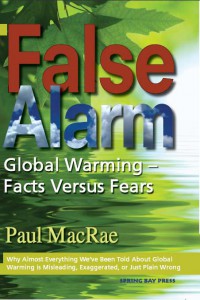Published by paulmacrae on 25 Jun 2014
University of Victoria petition based on misinformation
The following is an opinion article sent to the Victoria Times Colonist on March 14, 2014. It was initially rejected by the TC’s editorial page editors (as have all my opeds over the past few years, even though I used to work there on the editorial page), then accepted, a month later, by the editor. By that time the issue was stale and I didn’t resubmit. I’m told the TC is now more willing to accept opinion articles from climate skeptics than it has been in the past, and I hope skeptics will begin to submit opinion articles critical of the “consensus”.
A student-led open letter to the University of Victoria is asking the university to divest itself of its fossil-fuel investments. “The science is clear,” the letter says. “Anthropogenic carbon emissions are causing rapid climate change worldwide.”
This is a bad idea for many reasons, but here are four reasons why the university should reject this proposal.
1. For a start, the student letter is based on inaccurate information. “Rapid climate change” is currently not happening worldwide, and hasn’t for at least the past 15 years. Even the Intergovernmental Panel on Climate Change (IPCC) acknowledges the reduced rate of warming in its latest report: “The rate of warming over the past 15 years (1998–2012; 0.05°C per decade) … is smaller than the rate calculated since 1951 (1951–2012; 0.12 °C per decade).”[1]
That is, the actual, observed warming over the past 15 years, far from being “rapid,” is less than half of the warming trend from 1951. And 0.05°C of warming is so small it can only be detected by instruments. Continue Reading »


